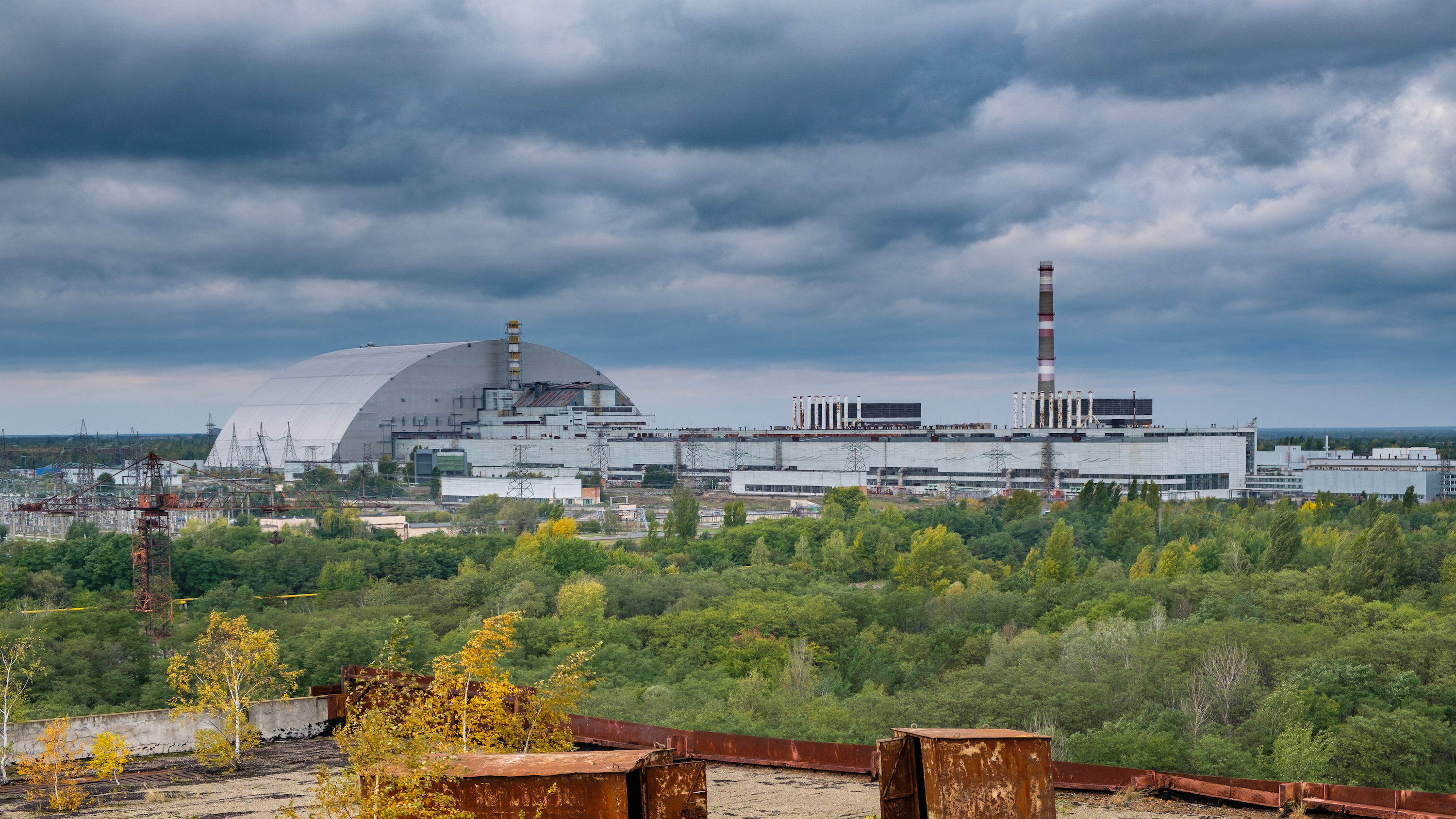Russian troops have taken over Chernobyl power plant, Ukrainian official says
Volodymyr Zelensky says troops are giving their lives to ensure ‘tragedy of 1986 will not be repeated’

Editor's note: Originally posted at 12:17 p.m. EST and updated at 2:42 p.m. EST on Feb. 24 to include new key information about the invasion into Ukraine, including that Russian forces have seized the Chernobyl Nuclear Power Plant.
Russian troops have captured Chernobyl's former nuclear power after heavy fighting near the Chernobyl exclusion zone, according to an advisor to the Ukrainian presidential office.
Ukrainian troops fought with Russian forces, which invaded the region from Belarus and have seized control of the now-defunct power plant, according to Mykhailo Podolyak, an aide to the Ukrainian president Volodymyr Zelensky.
The attack came as part of a full Russian invasion of Ukraine, the biggest on a European nation since World War II, with Russian forces claiming to have destroyed more than "70 military targets" and 11 airfields as of Thursday (Feb. 24). Advancing Russian forces have reportedly captured Antonov International Airport on the outskirts of Ukraine's capital, Kyiv.
Related: 5 weird things you didn't know about Chernobyl
"It is impossible to say the Chernobyl nuclear power plant is safe after a totally pointless attack by the Russians," Podolyak said, as reported by Reuters. "This is one of the most serious threats in Europe today."
As one of the most radioactive places in the world, large parts of the Chernobyl exclusion zone have been closed off since the disastrous meltdown of Ukraine’s Chernobyl nuclear power plant in 1986. In that year, two gigantic explosions at the plant blew off the reactor’s 2,000-ton (1,800 metric tons) lid, covering the surrounding 1,000-square-mile (2,600 square kilometers) area with nuclear fallout. The area was later deemed uninhabitable by humans for the next 24,000 years.
Sign up for the Live Science daily newsletter now
Get the world’s most fascinating discoveries delivered straight to your inbox.
"Russian occupation forces are trying to seize the Chernobyl nuclear power plant. Our defenders are giving their lives so that the tragedy of 1986 will not be repeated," Zelenskyy wrote earlier Thursday on Twitter. "This is a declaration of war against the whole of Europe."
An advisor to the Ukrainian interior ministry also warned that fighting around the power plant could lead to the potential disturbance of nuclear waste and the spreading of dangerous radioactive material across Europe.
"The National Guardsmen, who guard the collectors of unsafe nuclear radioactive waste, are fighting hard," Anton Gerashchenko, an advisor and former deputy minister at the Ukrainian Ministry of Internal Affairs, wrote on Facebook. "If as a result of the occupiers' artillery strikes the nuclear waste storage facility is destroyed, the radioactive dust may cover the territories of Ukraine, Belarus and the EU [European Union] countries!"
About 7,500 more Ukrainian soldiers were stationed in the exclusion zone between December 2021 and February 2022; the site lies close to Ukraine's northern border with Russia's ally Belarus and sits on the most direct route between it and Kyiv. A non-military satellite image posted on Twitter on Tuesday (Feb. 22) appeared to show that a pontoon bridge had been erected at the Pripyat river just 14 miles (22.5 km) north of the Chernobyl plant at the Ukranian-Belarusian border, possibly to facilitate the transport of Russian troops into the zone.
Originally published on Live Science.

Ben Turner is a U.K. based staff writer at Live Science. He covers physics and astronomy, among other topics like tech and climate change. He graduated from University College London with a degree in particle physics before training as a journalist. When he's not writing, Ben enjoys reading literature, playing the guitar and embarrassing himself with chess.










